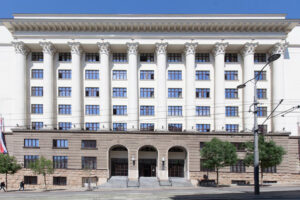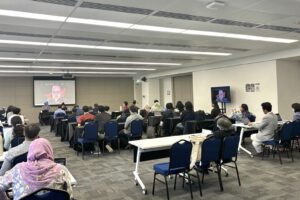
Nov 1, 2009
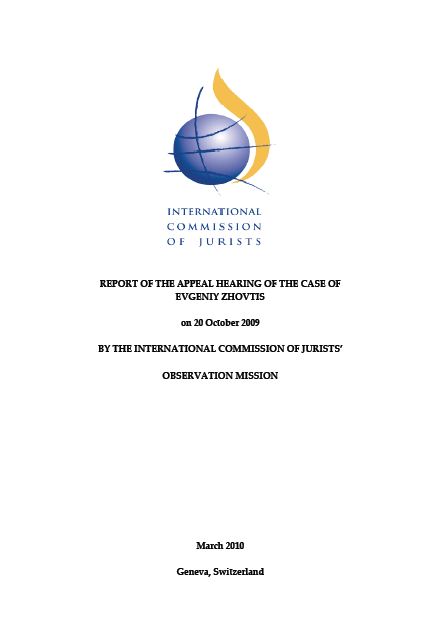
Report of a Mission of Observers to observe the appeal trial hearing of Evgeniy Zhovtis, a lawyer and one of Kazakhstan’s leading human rights defenders.
The ICJ decided to send a Mission of Observers to observe the appeal trial hearing of Evgeniy Zhovtis, a lawyer and one of Kazakhstan’s leading human rights defenders, having received reports that his initial trial had failed to meet international fair trial standards. Mr. Zhovtis was convicted for unintentional manslaughter following a car accident in July 2009. The present Report gives an account of the process, in which Evgeniy Zhovtis himself was not allowed to participate. It describes the conduct of the trial and makes legal assessment of certain particularly problematic issues. The report does not aim to replace the court minutes, which were not kept in this case, but rather gives an overall assessment of the hearing as well as some events taking place outside the courtroom. The legal analysis is based on internationally recognised standards relating to fair trial guarantees, including the jurisprudence of major human rights bodies. The observers would like to express their gratitude to all the parties to the proceedings who facilitated the observation process.
Kazakhstan-appeal hearing Zhovtis-trial observation report-2009-eng
Kazakhstan-appeal hearing Zhovtis-trial observation report-2009-rus

Sep 11, 2009
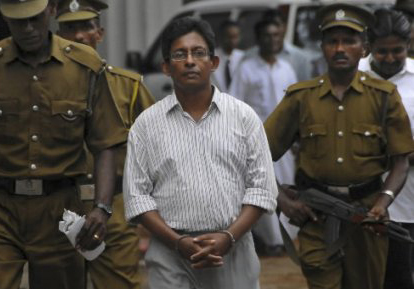 The report summarises the findings of observers appointed by the ICJ for the 2008 and 2009 missions to observe the trial of the journalist J.S. Tissainayagam before the High Court of Colombo.
The report summarises the findings of observers appointed by the ICJ for the 2008 and 2009 missions to observe the trial of the journalist J.S. Tissainayagam before the High Court of Colombo.
SriLanka-journalist-trial observation report-2009 (full text, PDF)
SriLanka-journalist-press release-2009 (full text, PDF)

Sep 3, 2009
Security practices and legislation, including related provisions of the Interim Constitution, criminal law and procedures, are outdated and contradict many international human rights standards to which Nepal is a party.

Sep 3, 2009
Centuries of entrenched practices of discrimination and exclusion of disadvantaged groups in Nepal have led to a demand to bring about greater inclusion, and ensure greater justice through a human rights framework.
These aspirations of Nepali people were voiced during the Jana Andolan II, as well as were reflected in the Comprehensive Peace Agreement 2006, and the Interim Constitution 2007. ICJ report discusses the advantages of constitutionalisation of economic, social and cultural rights as fundamental rights in the highest law of the land, thereby upholding its commitment to realizing all human rights of all Nepali people, as well as serve as an effective means to ensure social justice for all Nepali people.
Nepal_Economic, Social and Cultural Rights and The New Constitution_Themetic Report_2009 [Full text PDF]

Jul 22, 2009
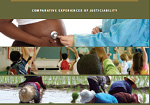 Drawing upon a full range of case law, the report shows that adjudication of economic, social and cultural rights is possible, desirable and already being carried out by courts in all continents.
Drawing upon a full range of case law, the report shows that adjudication of economic, social and cultural rights is possible, desirable and already being carried out by courts in all continents.
The report addresses the legal and political objections to the justicability of economic, social and cultural rights and confirms their justiciability.
Courts-legal-enforcement-ESCR-Human-Rights-Rule-of-Law-series-2009-eng (full text in English, PDF)
Courts-legal-enforcement-ESCR-Human-Rights-Rule-of-Law-series-2009-fra (full text in French, PDF)
Courts-legal-enforcement-ESCR-Human-Rights-Rule-of-Law-series-2009-spa (full text in Spanish, PDF)

 Report of a Mission of Observers to observe the appeal trial hearing of Evgeniy Zhovtis, a lawyer and one of Kazakhstan’s leading human rights defenders.
Report of a Mission of Observers to observe the appeal trial hearing of Evgeniy Zhovtis, a lawyer and one of Kazakhstan’s leading human rights defenders.








